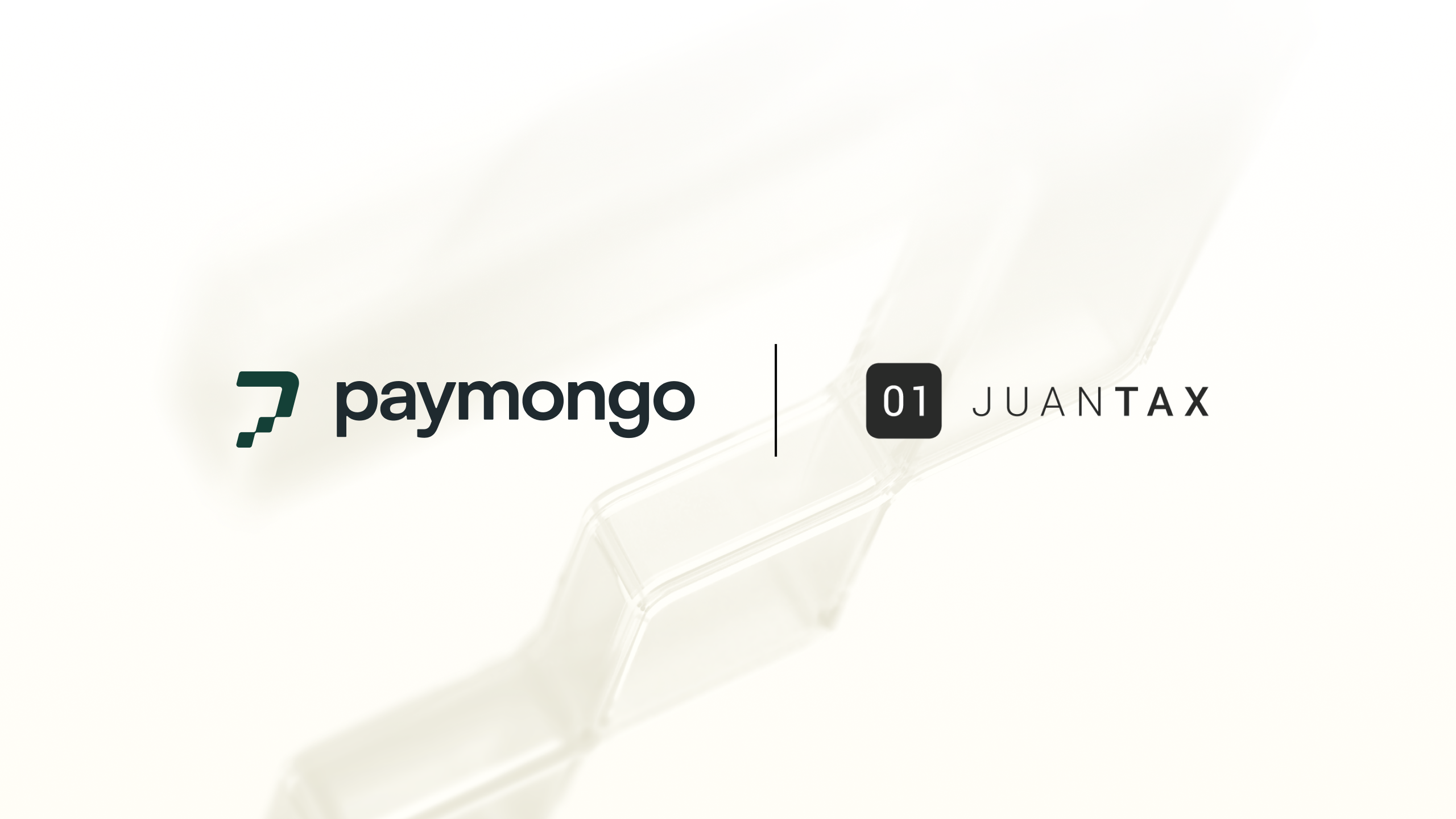Who run the (tech) world?

Table of Contents
In March 2021, Jaime Hing III, PayMongo co-founder and Chief Technology Officer (CTO), announced on his LinkedIn page that he was happy to hire the company’s Head of Software Engineering, Sherry Mae Flores.
“She stole the entire role from me in a good way. My team knows how I value leadership and emphasize that leaders should actually take good care of their team. As my software engineering head, Mae ensures that I would never worry at all when it comes to managing the whole software engineering team,” Jaime said.
Mae is a 13-year veteran in software development. She’s one of the 16 female engineers of PayMongo.
A casual discussion among PayMongo's communications, marketing, and creatives teams on gender equality and diversity, as well as Hidilyn Diaz being the first Filipino Olympian to win a gold medal, a woman at that, led to the writing of this story. (Think of a Zoom meeting evolving into an online water cooler conversation.)
These PayMongo teams comprise of non-engineers and combined, the number of men and women are nearly equal. Natural curiosity led to the question of how many female engineers PayMongo actually has, being a fintech startup and if they hold leadership positions.
An article from the International Women's Day 2021 website noted that the global engineering industry is still "dominated by men" and that "institutionalized gender stereotypes can dissuade girls and women from pursuing careers in engineering."

It's remarkable how in its own little way, PayMongo is able to provide equal opportunity to Filipino engineers who have the talent, skill, and creativity to introduce innovations and harness products that can make people's lives better.
“In PayMongo, we are focused on assessing the skills of an applicant and not their gender,” said Jaime, who often posts job openings in PayMongo on his LinkedIn page.
It’s not even a conscious effort that there should be equal representation in the company.
“I just realized the % between the male and female engineers in the company is almost even. I also want to point out that when it comes to promotion, gender does not matter. We evaluate you based on your contribution in the company,” he said.
To date, of PayMongo's more than 100 employees, 55 are female: 16 are in the engineering group and the rest are non-engineers.
Jaime said that aside from Mae, the engineering team also has female product managers “who are captains of each product line that they handle, making sure they give the best value that their team can provide for a given product line”; QA engineers who do manual and automation testing; and a Scrum Master who’s part of a group that’s “creative in their own ways maintaining the morale of the team.”

“I experienced all of these roles from our early days. Over time, I remove each responsibility from my end by filling in every role until I reach the point that I can focus on what a founder or manager should do,” Jaime said.
From the curious, casual conversation among colleagues, here is a Q and A with three of PayMongo’s pioneering female engineers– Alex de Ocampo, Rhiza Talavera and Jam Frigillana – where they talk about the exciting world of fintech, doing their part in helping Filipino businesses, and how to thrive in what’s thought to be a male-dominated industry.

Alex, 28, pursued a career in fintech because of her belief in the PayMongo founders’ vision for Filipino businesses. Rhiza, 28, and Jam, 29, are PayMongo’s SET (Software Engineering Team) leads who Jaime described as the ones “responsible and accountable within a product line, providing expert technical guidance to the product managers.”
Why did you pursue a career in fintech?
Alex: I pursued a career in fintech because I believed in our founders' vision for the Philippine businesses. When PayMongo (then Equiac) was just being conceptualized, I felt like supporting the goal of enabling online payments for businesses of all sizes. What resonated with me the most is being able to help individual to small businesses who have little to no means of accepting payments online. This is especially amplified during the pandemic and all its types of quarantines as I see small businesses, some of which are owned by people I know, struggle with keeping their businesses afloat.
Rhiza and Jam: As people who are very passionate about technology, we are in no doubt eager to pursue a career in fintech. With the ever-changing and growing industry, there is always so much more to learn and to discover. It created an industry of creative and passionate people eager to use the latest technologies to develop new products and services.
So what attracted us to the field was the opportunity for us to serve customers digitally, and to make a difference in people’s lives; using technology in providing them financial services. We get to innovate different solutions to serve the need for a better experience in all corners of the financial sector, from banking and insurance to investing and lending.
As the fintech industry booms, we noticed that we have limited resources for handling payments with excellent integration documentation, with support of multi-channel payments, and with low processing fees. With that in mind, the pioneering team drove to Baguio City, brainstormed some ideas, and came up with a solution which was the birth of PayMongo.
What's your work in PayMongo and what are your contributions to the company?
Alex: I started out as the sole QA Engineer of PayMongo, where I helped in ensuring that the features we release worked properly and free from critical issues. As mostly the case for startups, I personally experienced double-hatting roles when I took on half the responsibilities of a Scrum Master, implementing Agile processes and officiating scrum meetings. While pushing for quality features as QA and helping out the Engineering team members unblock their issues as Scrum Master, it came to a point where I got really interested in product management. After a few months of role transitions and double-hatting, I now currently work full time as a Product Manager for Internal Systems. Our pod aims to understand the pain points of our internal teams with their processes and create tools for them in order to support our merchants better. Thus, the birth of Greenhouse, our first frontend-facing admin tool.
Rhiza and Jam: Our company's goal is to enable businesses to accept payments online. As easy as it may sound, our team does the heavy work, honestly. We currently lead the development team that handles the backend processes which customers do not usually see, unlike the frontend applications or websites that users can browse and interact with. We manage the nitty-gritty details that ensure transactions are perfectly processed. We also collaborate with other teams to identify and troubleshoot technical problems.
Our customers direct our path for everything that we do in PayMongo. We always try to guarantee that we provide excellent service by prioritizing their needs and serving them to the best of our abilities.
How do you thrive in this industry?
Alex: I encountered some of my career firsts at PayMongo. It's my first time to be part of a company that is really focused on fintech and my first career shift to product manager. As cheesy as it may sound, I don't think I'll come this far if not for my teammates. We helped each other discover fintech's nooks and crannies since day one and they are the ones who continuously support me as their product manager. Experience may be the best teacher, but it is also important to keep abreast with the latest news on fintech, which is sometimes shared on our Slack #random channel or lightly discussed at meetings. Since I'm still quite new to my current role, I also read articles and guides about product management, mostly shared by colleagues.
Rhiza and Jam: Fintech has a very fast-paced innovation. We always feel the need to identify the next big thing to anticipate and adapt to the current trends. So following fintech leaders, reading technology blogs and articles help us in staying ahead of the game. We need to be continuously curious and keep improving ourselves all the time. Also, speaking up and sharing your ideas will encourage others to make their own opinion feeling safe enough to voice them.
What do you want to contribute in the industry?
Alex: As I familiarize myself with fintech, my goal to make online payments accessible to small businesses hasn't changed. I may be handling a product that does not directly affect our merchants, but I still believe that making internal processes efficient can empower PayMongo to enable merchants to grow their businesses and their customers.
Rhiza and Jam: As fintech impacts many aspects of our lives today, we believe that everyone deserves better financial services as digital life becomes the new norm. We want to build innovative solutions to support customers and build a sustainable future. We desire to address many pain points and tackle the challenges of tomorrow to serve the underserved. 🌱
Visit https://jobs.lever.co/paymongo/ for job opportunities and internship programs at PayMongo.
Subscribe to the PayMongo Blog
Join thousands of business owners in getting the latest financial insights






